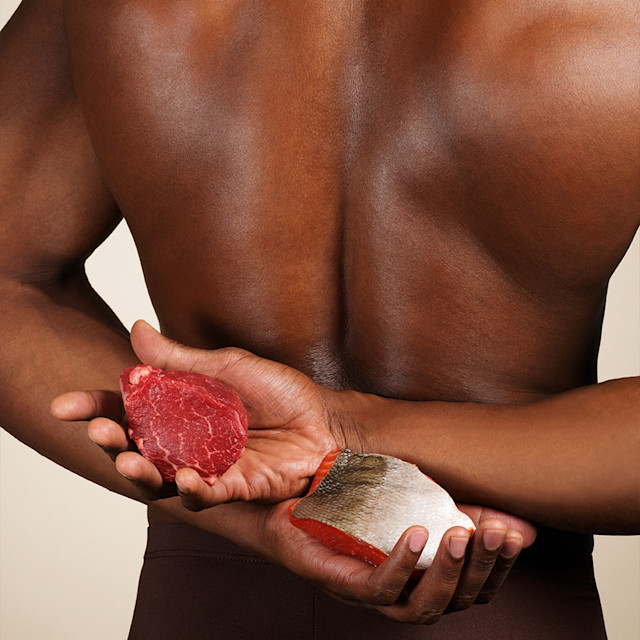Protein is one of the most hotly debated topics in the fitness and nutrition space. With the ongoing questions surrounding plant vs. animal protein, protein powders, and on— the ever-growing list makes it easy to feel confused about the role protein should play in your high-performance lifestyle.
The truth is that the science surrounding protein for fitness and supporting your workout goals is not black or white. Since there is a lot of nuance to navigate in the protein debate, Jillian O'Neil, Tier X Coach, and Dietitian breaks down what you need to know and what the latest science has to say.
Myth 1: You don’t need to focus on other nutrients as much as protein
Protein is a vital macronutrient, but it should not be the only thing you're prioritizing in your diet. "Protein is absolutely important for your body. It's clinically proven to be essential for muscle growth and for muscle maintenance," explains O'Neil.
If you're already getting enough protein in your meals and snacks, that's great. What you are eating alongside your protein may be more important than you've realized. "Protein works in synergy with other nutrients. So, when you consume carbohydrates with your protein, you can actually absorb, digest, and utilize those proteins to their highest potential compared to if you just only had protein," explains O'Neil. And on the flip side, if you tend to load up on carbs and eat less protein, you're missing out on getting the most out of your meals.
"If you're going to have only carbs at a meal or an entree, you're less likely to be able to utilize all those carbohydrates to their highest potential because there isn't any protein present," says O'Neil. "Know that it's most optimal when proteins and carbs are in synergy with each other rather than isolated."
Myth 2: Protein timing is key
There's a long-held idea that you must chug as many grams of protein as soon as you finish training. But, explains O’Neil, timing is actually not that crucial.
"Getting enough protein throughout the day is much more important than overloading your body on protein, where it can't absorb it all at once," says O'Neil. If you're incorporating enough protein into your meals and snacks each day, then you likely don't need to worry about timing overall.
Myth 3: All protein is the same
The debate for what kind of protein is "best" could go on forever. In fact, it's more productive to look at the types of protein available to you and consider factors like sourcing, nutrition profile, your personal values and preferences. According to O'Neil, the key focus should be on nutrient diversity. Getting a variety of nutrients is easiest when you switch up where you are getting your protein from - i.e., from both animal and plant sources since each type offers different nutrients.
Keep in mind that not all proteins are complete. "The term complete protein means a food has all nine essential amino acids. And when it is incomplete, it means that it's missing at least one amino acid." If you eat mainly plant-based sources of protein, you have to be a little more strategic with how you pair them with other proteins in order to give your body the combination of amino acids that it can utilize for important functions like muscle repair post-exercise.
The answer to making incomplete proteins complete is what O'Neil calls "protein stacking," where you combine proteins to make them complete. Think, rice and beans. "Independently, both rice and beans have some protein, but they're incomplete. But when they're paired together, they make up the profile of a complete amino acid," O'Neil explains.
